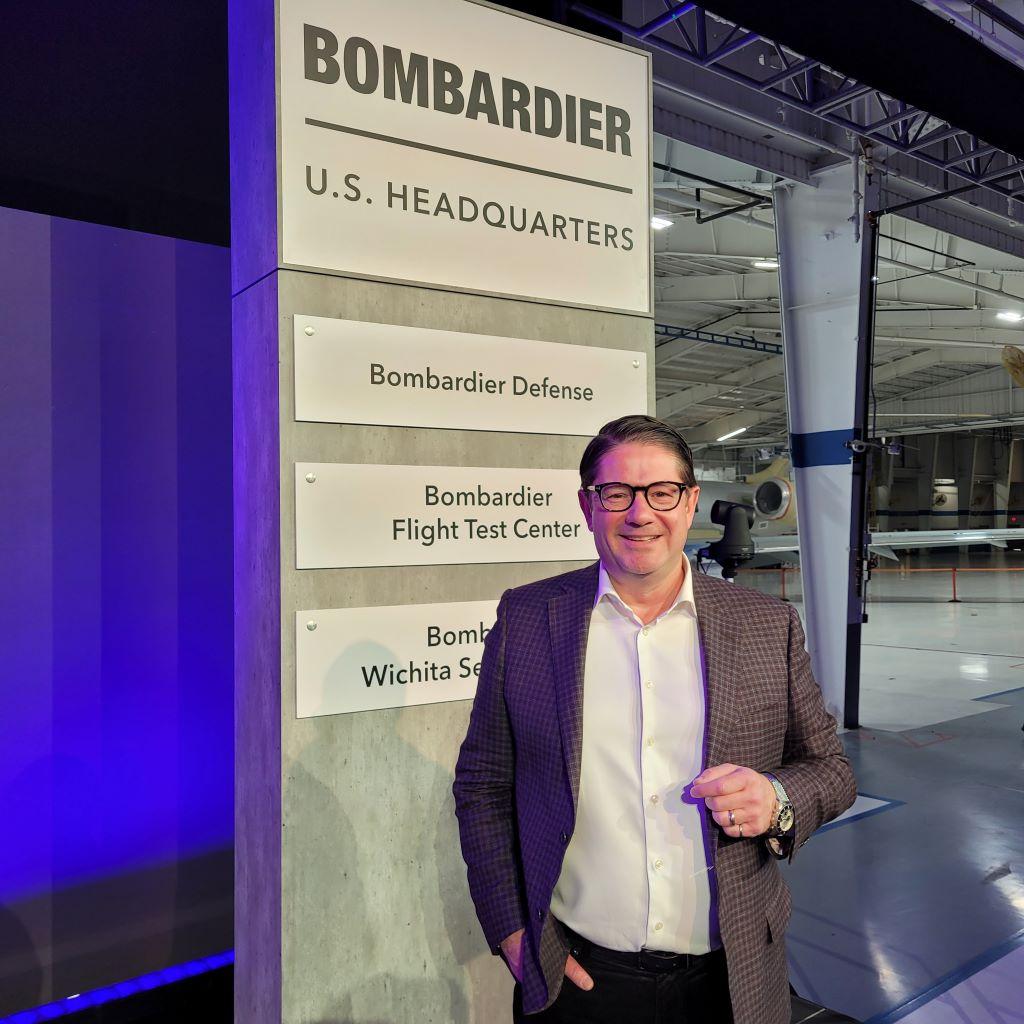
Eric Martel, Bombardier’s president and CEO, was in Wichita April 19 for Bombardier’s announcement that it was designating the site as its U.S. headquarters. The Weekly of Business Aviation caught up with him there.
What is the big picture? Why did Bombardier decide to designate Wichita as its U.S. headquarters?
We have a long history here, of course—I would say also a lot of capabilities. I think we have in Wichita a very talented workforce. We can do many things. I think in the aerospace business, and I really mean it, when we did our strategy plan at Bombardier, we really wanted to preserve that and have a clear role for this group of people here that are extremely talented. We said we need to grow our service capability. So, that’s why we’re going to continue to grow. I think we’re looking for something like 200 people right now in Wichita, additional people. We also said this is where we have more capability. We need to identify it as the U.S. headquarters for Bombardier. At the same time, our defense business has a lot of potential to grow over the years. So, we wanted to make it also official because most of the work is going to happen here. All of this together, and we have our test flight center for the world for Bombardier here. (We have) a lot of capability; a lot of talent and a workforce that’s always been supportive and capable of doing many things.
What is the timeline for hiring additional employees?
We’re looking at these people right now. It’s this year. We’re working closely with different schools right now to be able to ramp up and bring these people in.
Bombardier renamed its Specialized Aircraft division to Bombardier Defense in Wichita. What kind of growth are you seeing in your defense business?
I think we positioned ourselves in the last two years. There’s clearly a view right now for the military, the U.S. being one, (for) smaller airplanes. Our airplanes, like our Global, are an example. It can fly a very long distance for a lot of hours. You can put equipment on board. There’s clearly an attraction right now for this type of product that can have long missions and fly long hours. Our products are very renowned for that with the Global platform and with the Challenger. The BACN (Battlefield Airborne Communications Node) is one good example. We’re building one (using Global 6000s) right now, and we have announced that there will be more coming up. There are other things we’re working on right now with other military applications. We’re very excited about that business.
Despite ceasing Learjet production and delivery of the final Learjet in March, your Wichita facility has a lot of capabilities. What all is done here?
We’re not doing major structures here in Wichita. It’s more service center and maintaining the airplane. But we also do missionized work for the airplane. The BACN program is an example of installed specialized equipment. We have all our test capabilities here so that we can fly the airplane and test it and make sure that it works perfectly.
How is the market going in 2022? What are you seeing?
It remains very solid despite everything going on—the threat of inflation. We have a lot of talk about that. The war with Ukraine and Russia. But despite all of this right now, the momentum that we’ve seen last year—at the end of the year—keeps going. We’re going to be announcing our (first quarter) results pretty soon. We’re happy where we are. Things are shaping up. We’ve been able in the last two years to rebuild a lot of backlog, which is good, to bring stability to our business.

